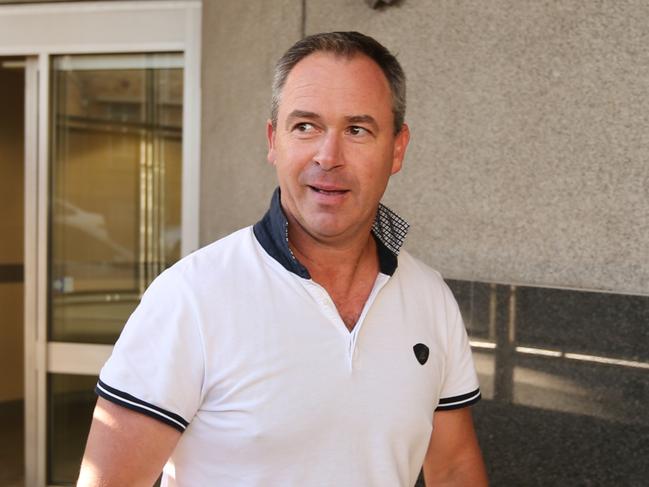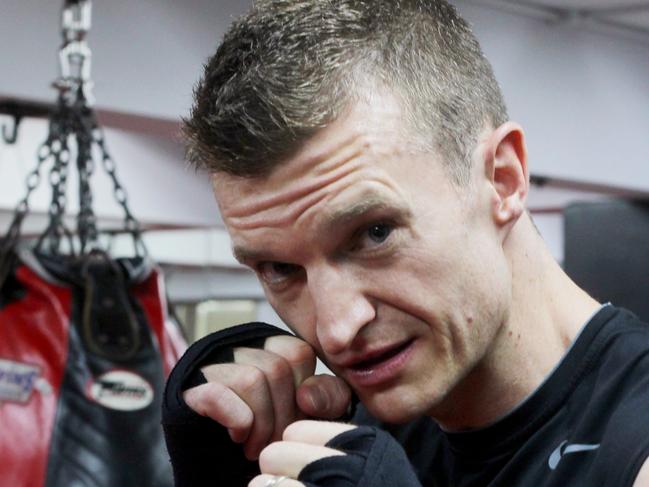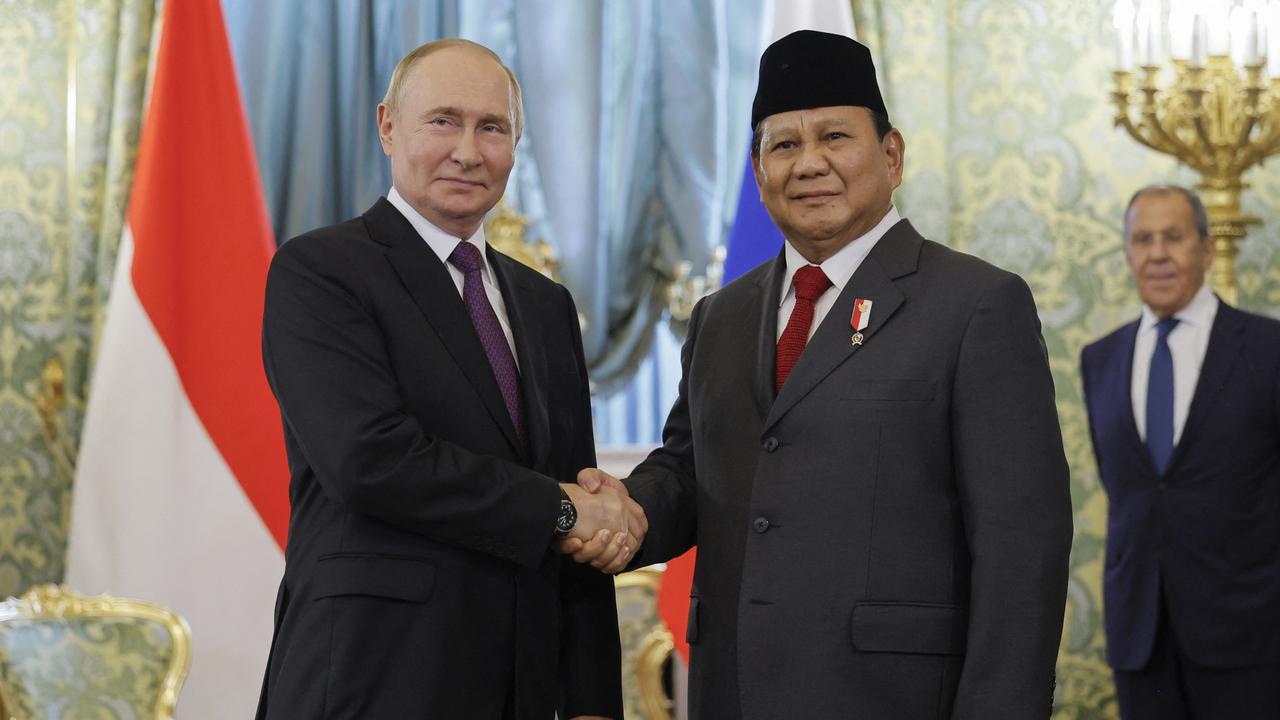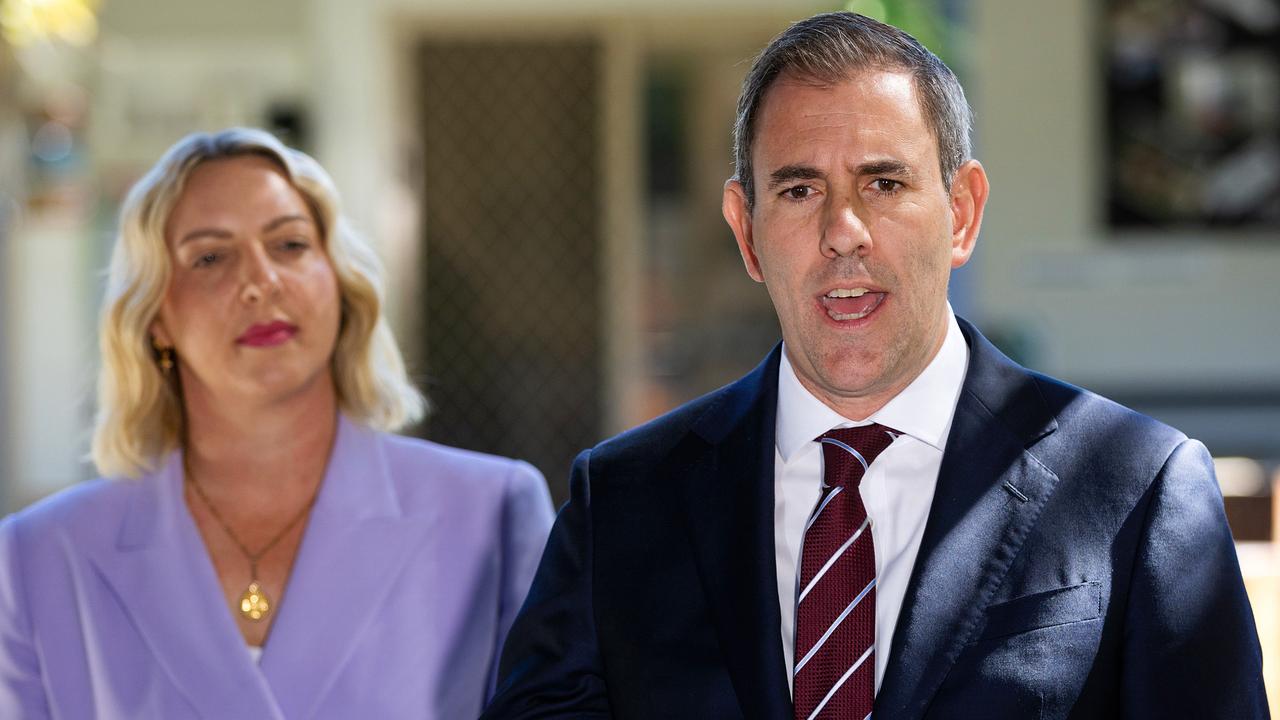No more case, but millionaire Tony Smith says he’ll fight on
Queensland authorities have dropped all criminal charges against Tony Smith and two associates over the alleged kidnapping of one of the NAB’s employees.

The epic 12-year war between millionaire Tony Smith and the National Australia Bank took its latest dramatic turn on Thursday, when Queensland authorities suddenly dropped all criminal charges against Smith and two business associates over the alleged kidnapping of one of the bank’s employees.
Prosecutors withdrew the case after their key witness — NAB banker Adam Gazal — declined to testify, just as Smith was about to gain access to a trove of internal bank documents.
The 54-year-old entrepreneur, who made a $70m fortune from Gold Coast tourism and nearly lost it all after the NAB called in his loans during the 2008 economic crash, expressed outrage at the timing of the withdrawal.
“I’ve spent more than a million dollars to get those internal bank documents and have my day in court, and after almost six years of spending the public’s money pursuing this case, the prosecution’s star witness gets to walk away without explanation,” he said.
Police had alleged that in 2013 Smith lured Gazal, his former banker at NAB, to an island off Indonesia and threatened him with violence to extract a false confession that Gazal had mismanaged the entrepreneur’s financial affairs. Smith and his alleged accomplices, former Queensland detective Mick Featherstone and public relations man Andrew Crook, were charged with attempted fraud and attempting to pervert the course of justice.
Those charges were all withdrawn in the Brisbane Magistrates Court yesterday, with prosecutor Phil McCarthy QC offering no explanation.
Smith said that last Friday afternoon the Queensland Office of the Director of Public Prosecutions informed his lawyers that the case would be dropped because Gazal no longer wished to testify for personal reasons. Earlier that day, Smith’s lawyers had confirmed that the court would make available a box of NAB internal records, which the bank had fought to keep confidential.
“The bank went to enormous lengths to try and stop us getting access to those records,” Smith said. “Why would they have any problem handing them over if the documents support the bank’s version of events?”
A saga worthy of Gold Coast folklore, the stoush between Smith and the NAB began with the collapse of his fortune in early 2008 during the global financial crisis. At the height of the success of his BreakFree tourism business, the former AFL footballer was worth $70m, and by 2007 he was building the most grandiose home on the Gold Coast across five beachfront blocks.

But the global downturn later that year sparked a death spiral in his shareholdings, and in early 2008 he was almost wiped out financially when NAB and other banks called in his loans. Smith decamped to Bali, where he now runs a successful beach club business, and sued the bank in the Queensland Supreme Court.
Smith’s lawsuit alleged that Gazal, a banker in NAB’s Southport office on the Gold Coast, had falsely assured him $20m in credit was available, when in fact Gazal had failed to get approval for it.
Gazal denied the allegation and in 2012 judge Peter Applegarth dismissed the lawsuit, describing Smith’s account of events as improbable.
Smith freely acknowledges that he then hired Crook — media spokesman for mining millionaire Clive Palmer at the time — to contact Gazal and offer him a meeting with a fictitious millionaire client on Batam island in Indonesia.
“We did a covert operation,” says Smith, who insists there was nothing illegal about the ruse.
Gazal told police that, once inside the villa, he was subjected to a terrifying ordeal in which two men dressed in Indonesian security uniforms took his passport and wallet, and Smith threatened to assault him and have him thrown in an Indonesian jail unless he confessed that his testimony in the civil case was false.
Smith refutes those allegations as ridiculous and says Gazal broke down, admitted wrongdoing and voluntarily recorded a 17-minute videotaped confession.
Smith used the videotape to sue Gazal in 2014, but the case was dismissed in 2015. By then Smith, Crook and Featherstone had been charged with attempted fraud and attempting to pervert the course of justice, following a police investigation.

Committal proceedings in the case dragged on for five years, as Smith challenged the legality of police search warrants and fought NAB to get access to the bank’s internal records of interviews with Gazal and other employees about his case.
Last week, Smith’s lawyers won the final right to get access to the documents, which they were scheduled to collect from the court on Monday. But on Friday afternoon they learned Gazal had withdrawn and the case was over.
“NAB didn’t want to hand over the documents, and now at the 11th hour, their star witness can’t continue,” Smith said. “It’s mind-boggling. I didn’t want the charges to get dropped. I asked my lawyers if I could get them reinstated.”
Neither NAB nor the Queensland ODPP would confirm whether Adam Gazal’s withdrawal had prompted the dropping of the case. NAB said the decision was a matter for the ODPP and the bank continued to support its employees involved in the case. A spokesman for the ODPP said: “On the basis of the evidence currently available to prosecute this matter, we exercised a discretion to not proceed with the prosecution.”
Outside court on Thursday, Crook’s lawyer, Jim Coburn, said his client was relieved to put the nightmare behind him. Smith, by contrast, indicated his fight with NAB was far from over.
“It’s just halftime,” he insists. “The game’s just starting to go in my favour.”



